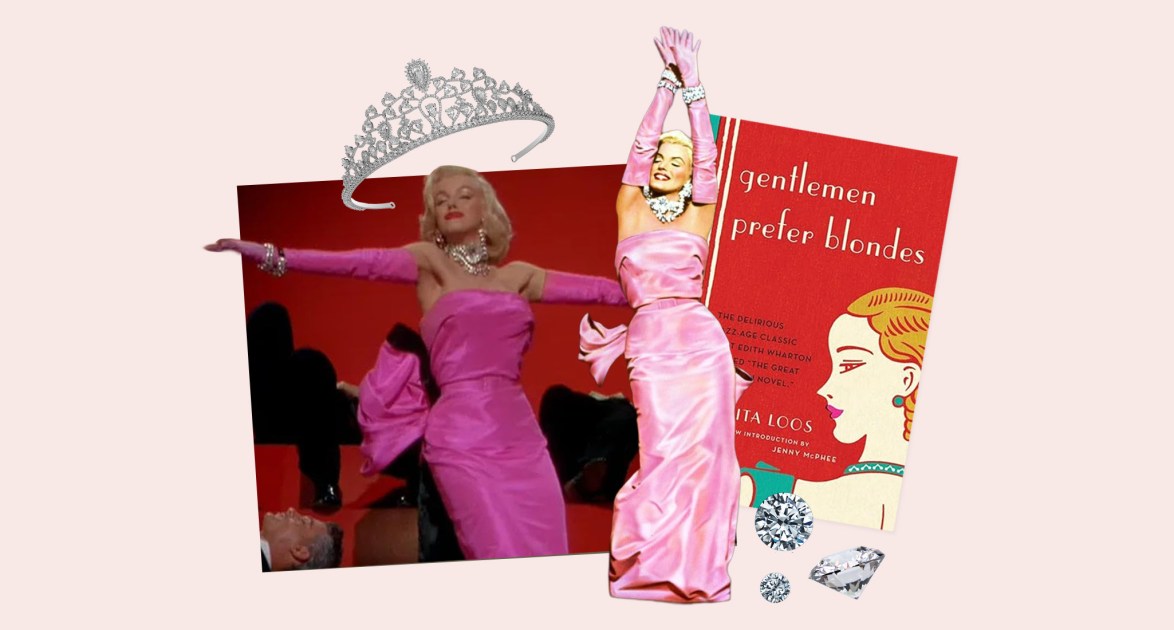While I loved the Monroe musical, Loos’s original work gave the seemingly brainless Lorelai a little more credibility (albeit sarcastically). The book was never meant to be a serious thing, either. Loos had the idea for it while struggling with her luggage on a train, while noticing that instead of offering her aid, all the men were fawning over a vapid natural blonde. However, the novella does deserve some credit in a way that the movie robbed Monroe of the same chance to redeem the trope.
Don’t get me wrong—in the film, Lorelai delivers plenty of witty aphorisms about the tribulations of womanhood. Notably, if you listen to “Diamonds Are a Girl’s Best Friend” in its entirety, you’ll hear the zingers. The particular gut punch: “Men grow cold / As girls grow old / And we all lose our charms in the end.” However, the plot sets it up so that Lorelai is portrayed as an engaged woman always scheming to find a better match, tripping in her own foibles in pursuit of the biggest possible diamond.
In the book, Lorelai isn’t engaged, and actually shows, beneath the ditzy veneer, a good modicum of intelligence as she juggles a string of interested, wealthy patrons and a diamond tiara heist, all while managing to bag the country’s most eligible bachelor and turn him into a vehicle to fund her Hollywood pursuits.

